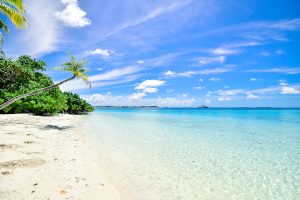What Are the Important Things to Bring When Camping?

Planning your first camping trip? Let’s talk about your camping checklist. Sure, an excursion through the wilderness does not require as many clothes and shoes compared to other holiday destinations. But there are a couple of things you won’t want to forget.
Suppose you were vacationing on Maui Islands and you forget to pack an essential item. All you’d need to do is look for the closest shop and purchase this item. In the forest though, it’s a completely different story. If you’re out camping and notice that you forgot your flashlight, there’s nothing you can do about it. So before you hit the road, go through our checklist to ensure you’ve packed all important camping gear.
Clothes
Mother Nature is very unpredictable, particularly in the country side. Keep in mind that hypothermia is the leading cause of death for those who get lost in the wilderness. This is because a majority of campers forget just how drastically temperature drops in these areas once the sun sets.
In case it rains, snows or the cold weather strikes when you’re camping, extra clothing will come in handy. Thus, it’s important that you pack enough warm clothing. Essentially, you should pack clothing that layers; this way, it’s easier to add or remove any of the garments based on how the temperature fluctuates.
Another thing to consider when packing camping clothes is to pick ones that wick away sweat and dry up quickly. We recommend clothes made of synthetics and merino wool. Here is an overview of the main clothing that you should bring:
- Cargo shorts and a windbreaker – These can be worn together or separately. They are ideal for the cold weather and light rain. Shorts can also be worn when you go hiking.
- A swimsuit – If you’ll be camping near a water body, then you shouldn’t forget to carry your favorite swimsuit. This will take very minimal space in your bag.
- T-shirts – Be sure to carry a couple of quick-drying t-shirts. These are great for camping in warm weather. And the good thing is that once it gets cold, it will be easy to layer clothes on them.
- Hiking boots – If you’ve ever gone camping, then you know how slippery and steep some places can get. Hiking boots are the best-suited for such environments. They have tread, which allows your shoes to grip uneven terrain and thus prevent slippage.
- Sports gear – Some people go camping so as to unwind and get away from the busy urban lifestyle. But others camp specifically because they want to exercise. If you belong to the latter group, you’ll need to carry a few sporting clothes.
- Sunglasses and sunscreen – If you’re camping during summer, then sunglasses and sunscreen are a must-have.
- Long sleeves – Should it rain heavily, having a waterproof pullover or warm jacket will prevent you from getting drenched in rain
Eating and Drinking Essentials
Depending on your camping destination, there’s a good chance that you’ll be making your own meals, or probably hunting for it. So if you are used to ordering take-outs, remember that there aren’t any sit-down restaurants in the Amazon rainforest. Thus, you should bring a few cooking equipment such as:
- Camping stove that has fuel– ensure you choose one that is suitable for backpacking or car camping.
- Cookware
- Utensils– for both cooking and eating
- A lightweight, reusable water bottle
- A water filtration system- you might have to rely on water from ponds and lakes, in which case you’ll need to filter it first.
- Small-sized cutting board
- Food- bring some pre-packaged snacks such as chocolate bars. You can also carry freeze-dried camping meals.
Shelter and Bedding
Unless you’re going glamping, you will need a couple of sleeping gear. You can choose from these options:
Tent
Camping tents are available in a range of sizes and shapes. The traditional design is that of a dome-shaped tent, which has a generous amount of space. Also, this tent is made using minimal material, making it lightweight.
One mistake that many campers make is to take all their pets along. We have nothing against you going camping with Bella. However, it’s likely that your 1-person tent won’t be able to accommodate you and your Rottweiler.
Hammocks
If you’re the kind of person who likes being cradled as you sleep, a hammock might be a better option than a tent. Unlike sleeping in a tent, you won’t have to worry about lying on rocks, stones or an uneven surface.
Sleeping pad
Despite the comfort offered by a hammock, most campers like using tents. If you’ve chosen this option, then you might want to consider a sleeping pad. This is usually placed on the ground before unrolling your sleeping bag, and it provides cushioning from the rough terrain of the camping grounds. Another benefit of investing in a sleeping pad is the fact that it prevents moisture from building up beneath your body. If moisture were to accumulate beneath your body, then you’d end up feeling cold all night long.
When it comes to sleeping pads, you have the option of choosing between an air mattress and a foam pad. Foam pads are cheaper. However, they are bulky and the cushioning they provide is not the best. Air mattresses provide better comfort, but you’ll need to buy an air compressor so as to inflate them. Alternatively, you can look for a hybrid, which combines the best aspects of the air mattress and foam pad.
Sleeping bag
Sleeping bags are available in a range of sizes, shapes, thickness and materials. But the most important aspects to consider when picking a sleeping bag are your individual comfort needs, size, and the weather conditions of your location.
Rain/Sun shelter
There are those campers who like to carry a pop-up shelter or dining fly so as to protect their dining areas. If you plan to bring one of these, remember to check in with the camping site officials to confirm whether they allow campers to tie ropes to trees.
Personal Items
A couple of personal hygiene products will go a long way when camping. There’s no need to start improvising. Instead, carry a few basic items like:
- Toothbrush and toothpaste
- Wash rage
- Towel
- Soap
- Brush or comb
- Razor
- Toilet paper
Navigation tools
If you are camping in a particular area for the first time, odds are that you’re likely to get lost. You can avoid straying by investing in the right navigation tools. Here are a few things you should consider:
- A portable GPS
- A compass and a map (this serves as back-up in case the GPS doesn’t work)
- Chargers (if your camping site has a charging station, then you should bring a couple of chargers to keep your devices running).
- A guidebook and pen/pencil
- Two-way radios- these are great for communicating, and are useful for people who camp in large groups.
- Flashlights or headlamps- remember to carry spare batteries
- A travel lantern
Entertainment
If your camping trip runs for a couple of days or weeks, then you’ll need sources of entertainment. This shouldn’t be a problem if you’re camping as a group as you can engage in team-building activities. But if you’re camping solo, the best source of entertainment is exploring every inch of your camping location. Whether you’re camping alone or as part of a crew, the following tools will be very useful:
- Binoculars
- A high definition camera
- Travel-sized board games
- Playing cards
- Kayaking gear- don’t forget to bring your life jacket, a repair kit and paddles
- Fishing gear- this includes poles, reels, lures and line
- Bikes
Cleaning tools
Although these are entirely optional, some individuals like camping on very neat grounds. If you belong to this category, then bring a few cleaning items wouldn’t hurt. These include a broom, dust pan, dish pan, rake, laundry detergent, dish rags and biodegradable soaps.
Wrap Up
Experienced outdoorsmen use a minimalist approach when it comes to packing for camping trips. But those less familiar with these excursions may find it challenging to plan for. They may start packing the fundamental items like a tent and sleeping bag. But by the time they are done, their cars will be loaded with way more gear than they’ll use.
Now even though the idea of camping is to create a home away from home, this doesn’t mean that you bring all your belongings. So before you toss your favorite snacks and books into that backpack, ensure you’ve packed all the must-have items first.






